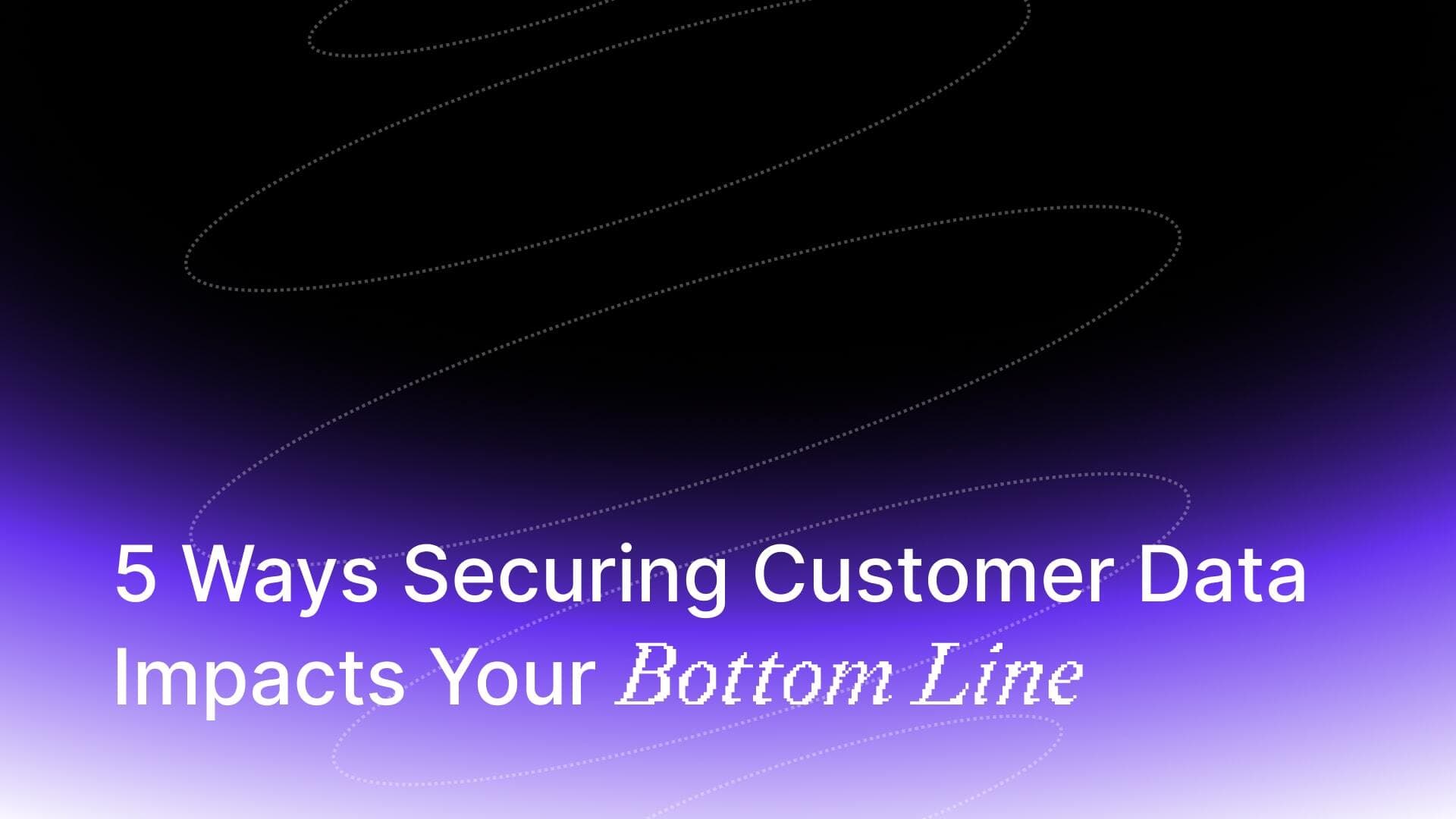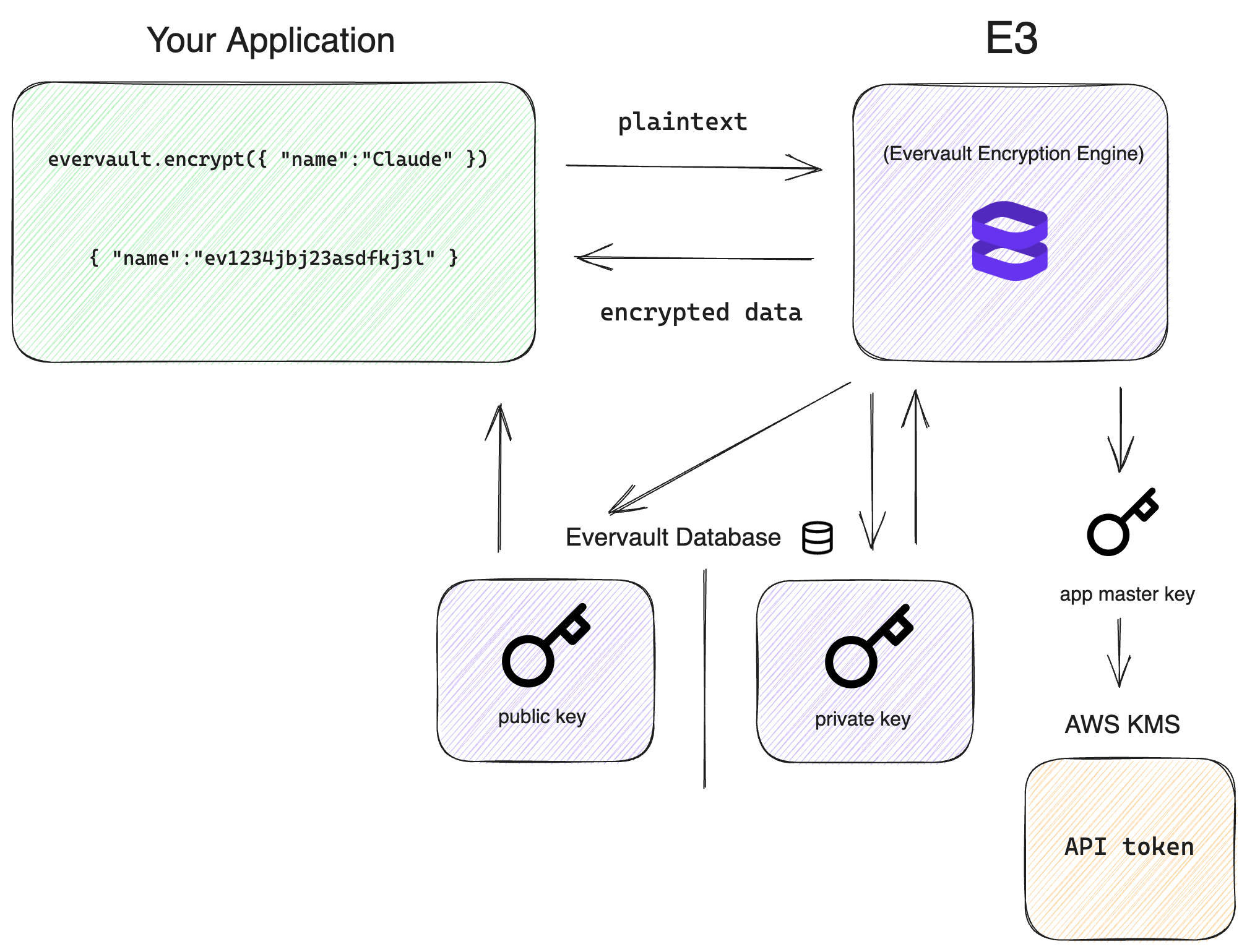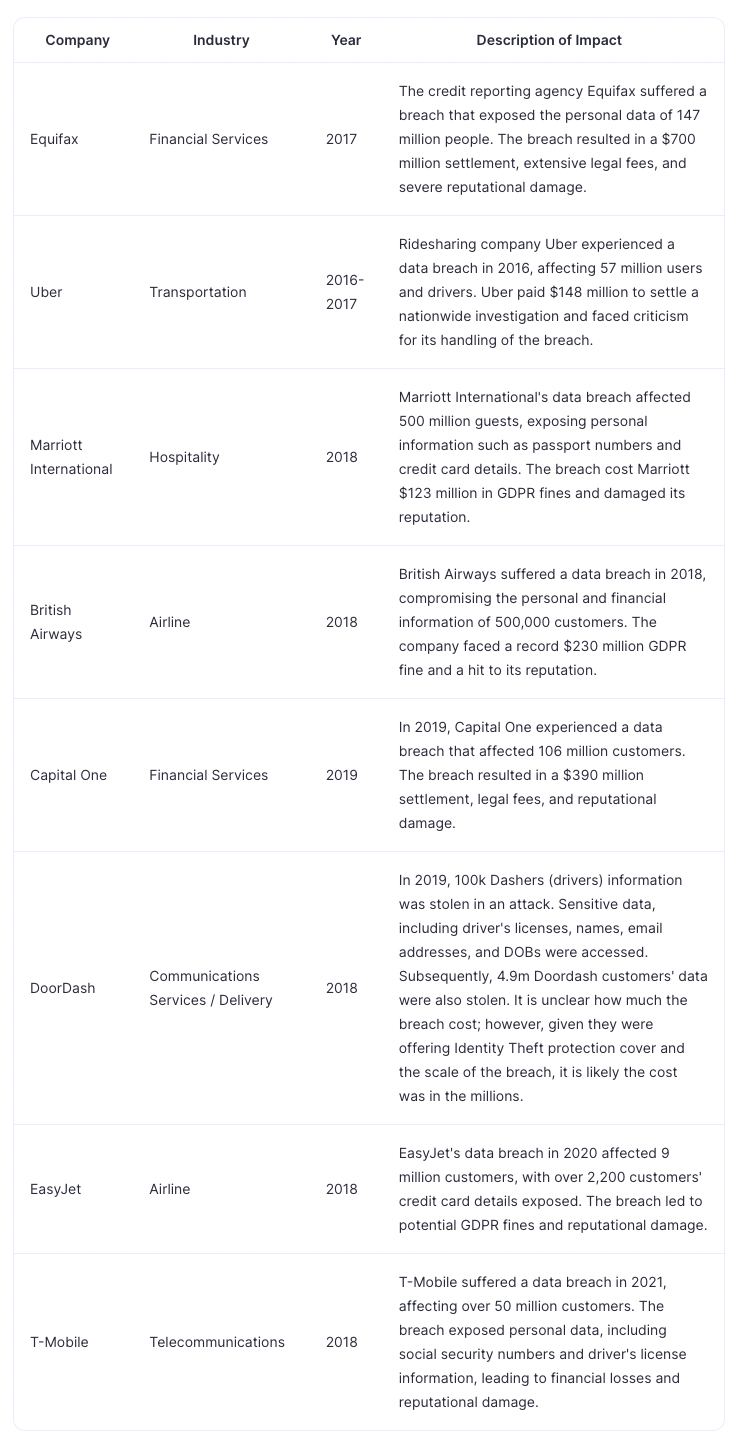Beyond payment tokenization: Why developers are choosing Evervault's encryption-first approach
How Evervault’s dual-custody encryption model eliminates the fundamental limitations of traditional tokenization for PCI compliance


Today, businesses of all sizes face a wide range of cyber threats. As we become increasingly reliant on technology, data protection is crucial. A robust cybersecurity strategy is multi-layered, but encryption is the keystone: It plays a vital role in ensuring the security of your company's valuable data and in maintaining compliance with global privacy regulations. Moreover, being a security-conscious business has proven revenue upside. Customers choose trustworthy businesses; protecting data could save you from a costly breach. In this article, we will explore the key benefits of using encryption to secure your company's data and how doing so can help you stay ahead of the competition while fostering trust with your customers.
Data is an essential asset for any business, and its protection should be a top priority. Data breaches can lead to financial losses, operational disruptions, and severe reputational damage.
According to a study by IBM, the global average cost of a data breach in 2021 was $4.24 million, the highest in the 17-year history of the report [1].
By encrypting your data at the field level, using a well-understood methodology to separate decryption keys from encrypted data, you add a critical layer of security that makes it difficult for cybercriminals to access, read, tamper, or use stolen sensitive information in a meaningful way. This increased level of protection helps your company minimize the risk of data breaches, ensuring business continuity and preserving customer trust.

To put this in perspective, preventing a breach by using Evervault encryption would cost your business less than 0.5% of the cost you could incur in data breach damages. The following table demonstrates some publicly disclosed outcomes arising from data breaches at companies you likely recognize:

As data protection becomes a global concern and governments begin to intervene to protect their citizens, the landscape of privacy regulations is becoming increasingly challenging to navigate. The European Union's General Data Protection Regulation (GDPR) and the Health Insurance Portability and Accountability Act (HIPAA) are just two examples of regulatory frameworks that mandate strong data protection measures. Non-compliance with these regulations can result in significant penalties.
GDPR fines can reach up to 4% of a company's annual global turnover or €20 million, whichever is higher [2].
By using comprehensive encryption, your company can demonstrate compliance with these regulations and avoid potential fines, legal action, and reputational damage. This proactive approach to data security not only benefits your bottom line but also enhances your credibility in the eyes of customers and partners.
In the age of high-profile data breaches, customers are more concerned than ever about the security of their personal information.
A PwC survey found that 85% of consumers would not do business with a company if they had concerns about its security practices [3].
This trend is becoming increasingly pronounced as supply chain attacks become mainstream attack vectors. The response to this is what industry experts call “Clean Infrastructure,” maintaining a well-organized, efficient, and optimized infrastructure for software applications or systems, which includes clearly defined security and compliance practices. Encryption at the field level is a visible demonstration of your company's commitment to data privacy and security built into your infrastructure. When customers know that their data is protected by strong encryption, they are more likely to trust your business and remain loyal. This loyalty can remove barriers to winning business and increase customer retention with long-term revenue growth.
If your core product handles sensitive data, using encryption can position you as a leader in your industry.
The 2021 Verizon Data Breach Investigations Report revealed that the most affected industries were finance, insurance, healthcare, and retail, accounting for 67% of all breaches [4].
By staying ahead of the data security and regulatory compliance curve, your business can gain a competitive advantage and enhance its reputation. This can also lead to long-term benefits across the industry, encouraging more and more companies to take security seriously, possibly one day ending data breaches for good.
As technology continues to evolve, so too do the threats posed by cybercriminals. Implementing an encryption solution that applies encryption at the field level future-proofs your business against emerging cyber risks. By adopting a proactive approach to data security, you can ensure that your company remains agile and resilient in the face of new challenges, maintaining your competitive edge in the long term.
Looking back at the numbers:
The Evervault encryption platform allows organizations to leverage encryption with minimal disruption to current systems and processes. Sign up for a free account here to see how it works, and contact us to talk through how encryption fits into your wider security strategy.
[1] IBM Security. (2021). Cost of a Data Breach Report 2021: https://www.ibm.com/security/data-breach
[2] European Union. (2016). General Data Protection Regulation (GDPR): https://eur-lex.europa.eu/legal-content/EN/TXT/?uri=celex%3A32016R0679
[3] PwC. (2018). Consumer Intelligence Series: Protect.me: https://www.pwc.com/us/en/advisory-services/publications/consumer-intelligence-series/protect-me/cis-protect-me.pdf
[4] Verizon. (2021). 2021 Data Breach Investigations Report: https://www.verizon.com/business/resources/reports/dbir/